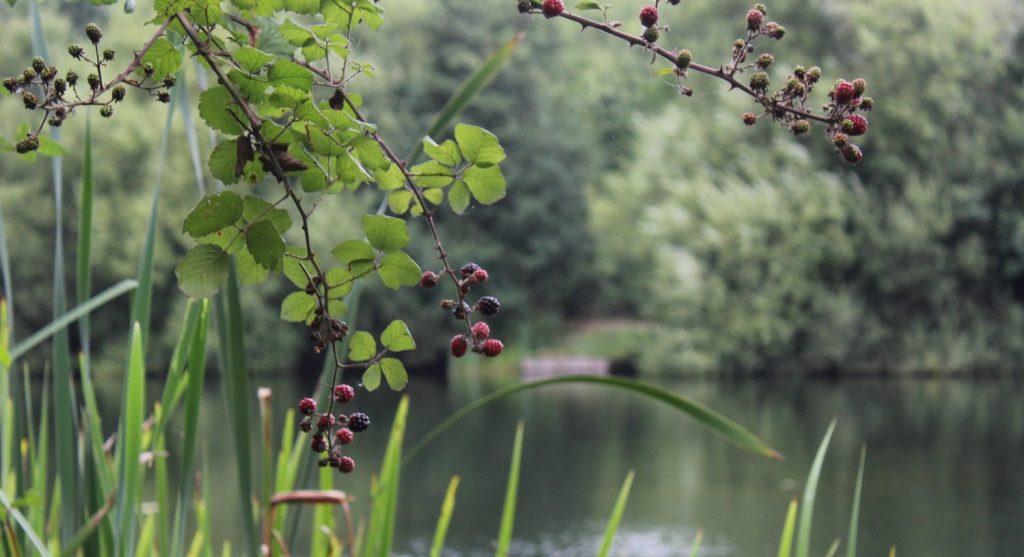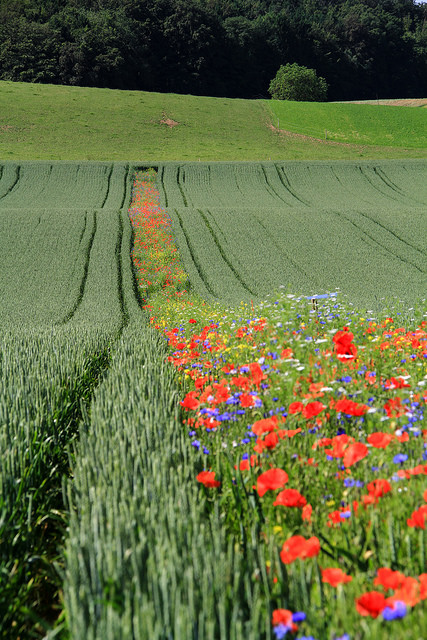Last month, researchers from the Loddon Observatory – a unique research, teaching and innovation project based around a river basin – showcased their work to academics and colleagues. Sarah Harrop went along to find out more.

The humble river Loddon is hidden under a Basingstoke shopping centre for much of its first mile. It meanders for 28 miles before joining the Thames in the Berkshire village of Wargrave. So far, so unremarkable. But this river and the 400 square miles it drains – the Loddon catchment – is home to a unique University of Reading experiment which combines research and teaching to figure out how societies can live more sustainably.
The Loddon Observatory links up researchers from disciplines as disparate as typography and geography with farmers, businesses and government agencies. The idea is that by coming together to focus their attention on problems within the Loddon catchment, they can achieve far more than they would if working in isolation.
On 25 September, Loddon Observatory researchers held a Showcase at the University to demonstrate their work through posters and quickfire talks. Here is a taster of some of its many research projects.
Wiser land use
The LANDWISE project looks at using natural processes to reduce the risk of flooding, by slowing the flow of water through the landscape and finding ways to store it.
“If we think of our landscape as a bucket, we are asking what we can do to make this bucket as big as we can, but keep it from filling up so there’s enough space to absorb rain,” says project lead Dr Jo Clark, who is the Observatory’s Director.
The four-year, NERC-funded project will study whether natural flood management ideas suggested by those who own and manage the land can make a difference. These include changing the type of crops grown, altering how the land is prepared for sowing crops, and planting more trees.
Flood survival tips
Josefina Bravo is a Typography and Graphic Communication PhD student at Reading who is developing visual information to help prepare people in the event of a flood. She works in partnership with volunteers who have experienced floods first-hand. This gives her insights into which designs of leaflets and information materials work best to engage people at risk.
“Most people encounter emergency information at the time of the emergency and not before. That’s why it is critical that information is clear and quick to absorb, but also that invites use before the flood is imminent,” she explains.

Benefiting bees

Many crops depend on pollination by bees and other insects. But intensive farming reduces their diversity and numbers by squeezing out semi-natural habitats and making landscapes less varied. Concerns are mounting that there now aren’t enough pollinators to ‘service’ the UK’s crops.
Dr Emma Gardner’s research maps the types of landscape cover available and how good they are for supporting pollinators. This includes looking at how far apart nesting and foraging for bees are – since some bees can fly far from home and others have a very short range. Her research is calibrating models which predict bee populations with real-life measurements.
“We are trying to optimise the models to get them to better agree with reality. Then we can map the whole of the UK, see where the bee populations are struggling, and try some interventions to help them,” she explains.
Safer drinking water
Metaldehyde, the toxic compound used in slug pellets, can enter the water supply after heavy rains and end up in our drinking water. The chemical is widely used by gardeners and farmers to help grow vegetables, but that has to be balanced with keeping drinking water clean and the cost associated with removing it from the water supply. Charlotte Hawkins’ PhD research is using water samples from the Loddon catchment to calibrate and refine the tests used to measure pesticides in water to make them more accurate.
